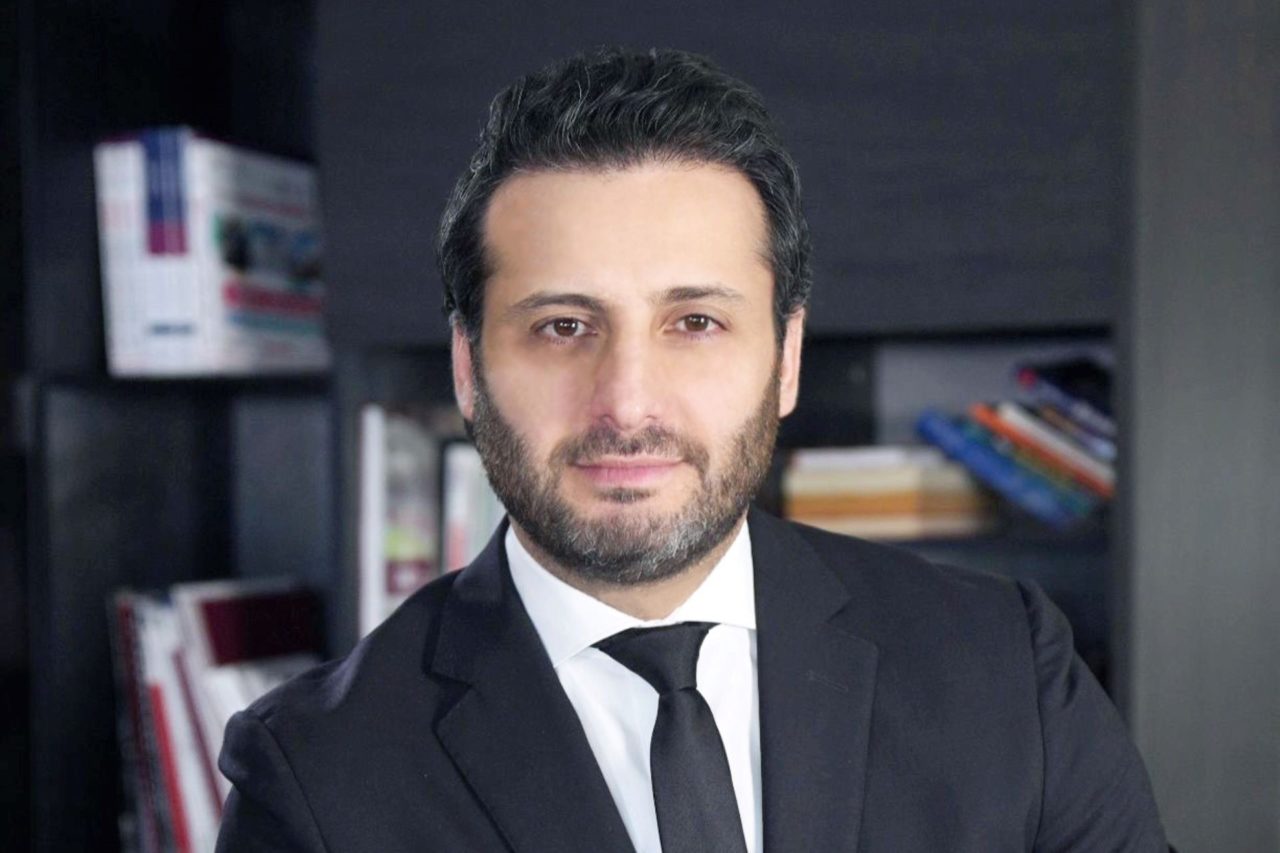As Qatar continues to position itself as a global hub for tourism and business, the Qatar Travel Mart (QTM) has emerged as a leading platform connecting local and international stakeholders in the travel and hospitality industries. This annual event brings together hundreds of exhibitors from over 60 countries, showcasing destinations, innovations, and sector-specific developments ranging from luxury and halal tourism to sustainable travel. QTM plays a pivotal role in supporting the country’s broader economic diversification goals under Qatar National Vision 2030.
Leading this ambitious initiative is Mr. Rawad Sleem, Co-Founder and General Manager of NeXTfairs. With over 18 years of industry experience and strategic leadership across sectors, Mr. Sleem has been instrumental in shaping Qatar’s exhibitions landscape. Under his guidance, QTM has grown into a world-class event.
In this exclusive interview, he shares insights on the evolution of QTM, its impact on Qatar’s tourism goals, and what the future holds for this dynamic platform. The conversation is led by Alexander Chetchikov, President of the World Luxury Chamber of Commerce, who brings more than 17 years of experience and expertise from the Luxury Lifestyle Awards into the world of luxury travel.
Alexander Chetchikov: QTM has grown significantly over its editions. What were the key milestones in its development, and how have they shaped the event’s current stature?
Rawad Sleem: Since its inception, Qatar Travel Mart has evolved into a landmark event for the tourism and hospitality industry, not only in Qatar, but across the region. One of our key milestones was launching QTM as the first major post-pandemic travel exhibition in Qatar, which positioned us as a recovery platform for the global industry. Over subsequent editions, we expanded participation to over 60 countries, diversified our exhibitor base, and curated high-impact content sessions exploring critical industry themes.
Another pivotal development has been aligning QTM with Qatar National Vision 2030. This strategic alignment has helped position the event not just as a trade fair, but as a catalyst for long-term tourism development. Today, QTM is a must-attend platform for anyone looking to engage with the evolving dynamics of global travel, with Qatar as a strategic hub at the center.
AC: QTM 2024 emphasized sustainability and innovation. How did these themes manifest in the event, and what feedback did you receive from participants regarding these focuses?
RS: Sustainability and innovation were deeply embedded in QTM, from the exhibitors and the conference program to the event infrastructure itself. Many destinations and companies showcased eco-conscious travel solutions, digital booking tools, and smart tourism technologies. Sustainable travel and transportation were also a key focus, with partners like Mowasalat supporting greener mobility options. The event shed light on low-carbon travel and the growing role of greener hotels in reshaping tourism standards. Several exhibitors in past editions introduced impactful sustainability initiatives, further underlining our collective commitment to responsible tourism.
We also worked hard to make the event itself as eco-friendly as possible — from issuing digital badges to using recyclable materials in all aspects of production. Our conference sessions echoed these values, featuring thought leaders discussing how the industry can adapt to climate challenges while embracing digital transformation. The feedback was overwhelmingly positive. Participants appreciated that QTM went beyond being a marketplace to become a platform for forward-thinking dialogue and partnerships.
Looking ahead, QTM 2025 will take this commitment even further with the introduction of a dedicated Sustainability Sector, bringing together exhibitors who prioritize responsible and sustainable practices. We are proud to already have the Green Destinations Association on board as a partner in this initiative, reinforcing our mission to drive real, measurable progress toward a more sustainable travel industry.
AC: With over 300 exhibitors from 60 countries, how does QTM facilitate meaningful connections between international participants and Qatar’s tourism stakeholders?
RS: We provide multiple layers of connection. Through our Hosted Buyers Program, matchmaking tools like QTM B2B App, and curated networking events like QTM Reception and QTM Gala dinner, we enable exhibitors and participants to forge valuable partnerships. We also ensure active involvement from key Qatari tourism stakeholders: hotels, destination management companies, and government entities, so that global participants can explore tangible collaboration opportunities within Qatar. This multi-tiered approach helps drive investment, cooperation, and shared growth.
AC: QTM aligns with Qatar’s National Vision 2030. Can you elaborate on how the event contributes to the country’s goals of economic diversification and tourism development?
RS: Qatar Travel Mart (QTM) is a key initiative aligned with the tourism development pillar of Qatar National Vision 2030. As Qatar transitions to a knowledge- and service-based economy, tourism is a vital driver of sustainable growth and diversification. With major projects like Smaisma and a booming sports tourism sector—built on Qatar’s history of hosting world-class events such as the FIFA World Cup—the country is reshaping itself as a global destination.
As the only exhibition in Qatar dedicated exclusively to travel and tourism, QTM offers a unique platform connecting international brands with Qatari stakeholders, expanding inbound tourism, showcasing destination developments, and fostering strong partnerships across sectors.
Beyond the exhibition, QTM acts as a hub for knowledge-sharing, strategic business meetings, and industry collaboration, supporting talent development and the growth of Qatar’s tourism ecosystem.
By showcasing emerging sectors, encouraging sustainable practices, and fostering innovation, QTM supports the objectives of Vision 2030 while helping position Qatar as an increasingly influential player in diverse and sustainable tourism.
AC: The inclusion of sectors like Halal and Medical Tourism in QTM 2024 highlights niche markets. What strategies are in place to promote these sectors, and what potential do they hold for Qatar?
RS: Halal tourism has always been a strategic focus for Qatar Tourism, deeply connected to our cultural and religious values. Qatar is well-positioned to be a global leader in this sector, offering exhibitors dedicated visibility, targeted buyer connections, and specialized content within the conference program.
Qatar has made remarkable advances in the medical sector, with world-class facilities like Aspetar and attracting top athletes from around the globe for treatment and rehabilitation. With ongoing investments and developments in healthcare, we wanted to highlight Medical Tourism at QTM by establishing a dedicated sector zone. We are proud to partner with the German Medical and Wellness Association, strengthening our presence in this growing field through collaboration with leading medical and wellness providers.
Both sectors attract discerning travelers focused on quality and authenticity, perfectly aligning with Qatar’s vision to diversify and lead in premium tourism experiences
AC: The Global Village at QTM showcased diverse cultural offerings. How does this feature enhance the visitor experience and promote cross-cultural understanding?
RS: The Global Village is much more than a showcase; it’s a vibrant celebration of cultural diversity and a powerful platform for soft diplomacy. By providing countries with a unique space to share their heritage, cuisine, music, and traditions, we create an immersive and memorable experience that truly connects cultures and people. This environment encourages visitors to engage deeply, fostering mutual respect, understanding, and a genuine appreciation for different ways of life. Beyond traditional marketing, the Global Village allows destinations to tell their stories through authentic, emotional experiences that build lasting connections and enrich the spirit of tourism.
AC: As the organizer, what challenges have you faced in curating an event of this magnitude, and how have these experiences shaped your approach to future editions?
RS: Organizing an event like QTM involves navigating complex logistics, global coordination, post-COVID travel uncertainties, and the need to align with both local and international standards. One of our key learnings has been the importance of adaptability. The tourism sector is dynamic, and we have had to stay agile to remain relevant.
These experiences have strengthened our commitment to innovation, stakeholder collaboration, and continuous improvement. We have focused on building strong relationships with ministries, embassies, tourism boards, and exhibitors, and co-creating value at every stage. This collaborative initiative is the center to our future strategy.
AC: Looking ahead to QTM 2025, what innovations or new initiatives can participants anticipate, and how will they build upon the successes of previous editions?
RS: QTM 2025 will be our most ambitious edition yet, featuring key sectors including Sustainable Tourism, Sports Tourism, Medical Tourism, and Technology. These areas showcase Qatar’s diverse strengths and its commitment to innovation and responsible growth.
We are also enhancing our Hosted Buyers Program, introducing more personalized networking opportunities, and investing in digital tools to boost engagement before, during, and after the event. Our content will cover emerging topics such as AI in travel, regenerative tourism, and evolving market trends.
Our goal is to deliver a dynamic platform that drives meaningful connections and advances the future of tourism in the region.
Thank you, Mr. Sleem, for sharing your valuable insights and for your continued leadership in advancing Qatar’s tourism and events industry.
Visit https://qtmqatar.com/ to learn more about this must-visit event.





